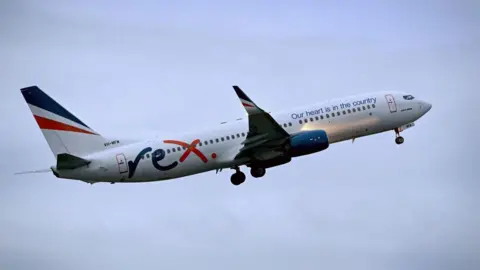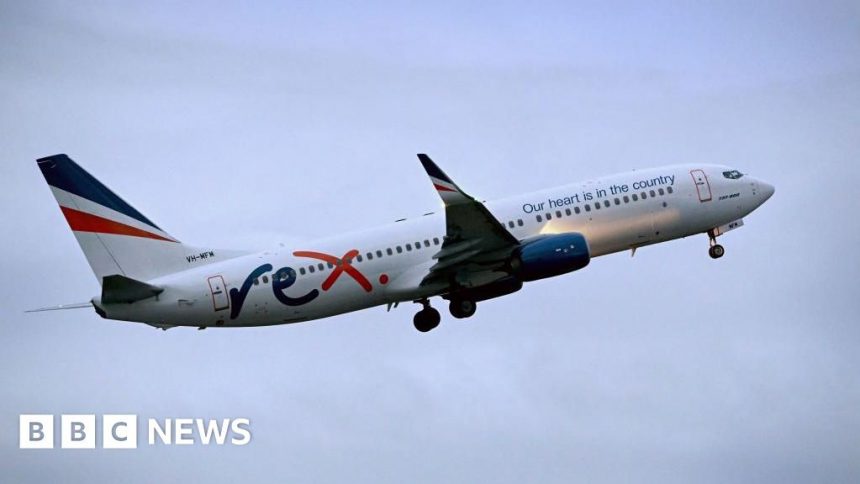Australia’s third largest airline enters administration
 AFP
AFPAustralia’s third-largest airline has gone into voluntary administration and cancelled flights on some of its routes.
Rex Airlines specialises in flying to dozens of smaller regional towns and cities across the country – many of which are not serviced by larger rivals Qantas and Virgin Australia.
Trading in Rex shares was halted earlier this week ahead of the announcement that Ernst & Young Australia has been appointed as administrator.
It comes just months after another Australian carrier – Bonza – went out of business in a turbulent domestic market.
Founded in 2002 after the collapse of Ansett, Rex flies in and out of around 56 airports.
It has a fleet of 66 aircraft – mostly 34-seater Saab 340 planes, but also nine Boeing 737-800s.
Since 2020 it has used those larger aircraft to operate between bigger cities such as Melbourne, Sydney and Brisbane – routes already lucrative for other carriers.
Those flights have now been cancelled, with its 737-800s grounded.
Passengers who hold bookings will not get refunds, but can change their flight to travel with Virgin Australia free of charge.
Services on regional routes using the smaller planes will continue to operate.
Speaking before the administration was announced, Australian Prime Minister Anthony Albanese said that Rex was “important” to regional Australia.
“One thing we need to do is to make sure that we have a viable and ongoing Australian aviation industry,” he told ABC News.
Transport minister Catherine King said the government was prepared to “work with Rex”.
“We want to make sure that they have a future as part of aviation in this country, and we’re very determined to make sure that happens,” she said.
“We obviously don’t want to do that just at any cost. We want to be involved very closely in what that future might look like. I know this is a very uncertain time for staff, a very uncertain time for passengers.”
In a statement earlier on Tuesday, opposition transport spokeswoman Bridget McKenzie said there was not enough competition in the sector, given the dominance of Qantas – which also owns Jetstar – and Virgin Australia.
“Two aviation companies control more than 93% of the domestic space and companies like Rex create more competition which means cheaper airfares across the board,” she said.
Shares in Rex have roughly halved in the past 12 months.
The company also owns a 50% stake in another aviation business used to fly workers in and out of remote worksites such as mines.
Another Australian airline, low-cost carrier Bonza, went into administration earlier this year.
More than 300 Bonza employees were stood down in April, after it entered voluntary administration following the sudden repossession of its fleet of six Boeing 737 Max-8 aircraft.
It later collapsed after no rescue deal could be found.





